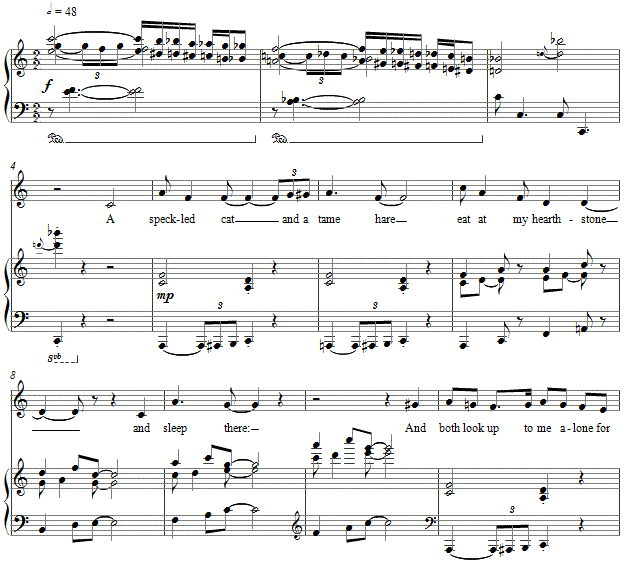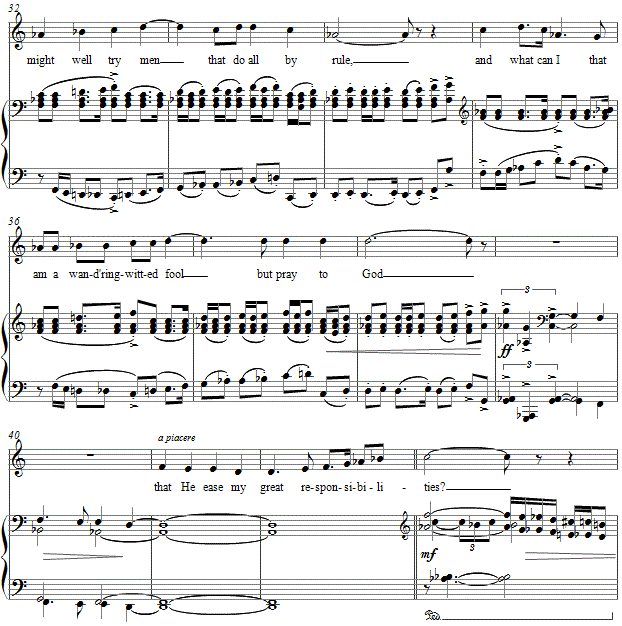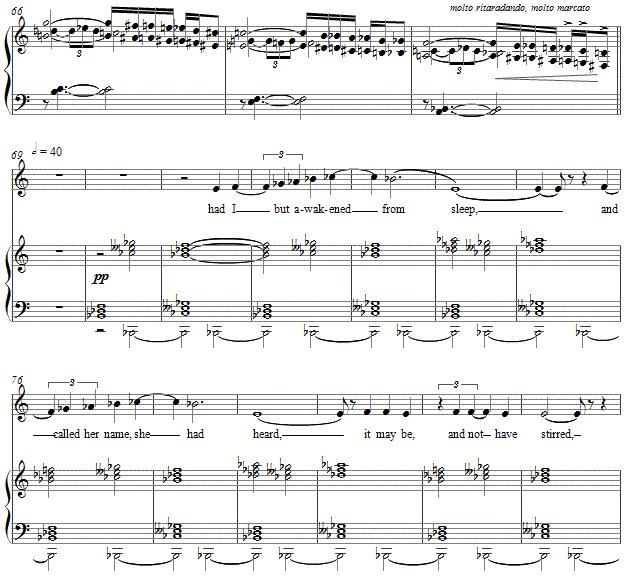Music and Texts of GARY BACHLUND
Vocal Music | Piano | Organ | Chamber Music | Orchestral | Articles and Commentary | Poems and Stories | Miscellany | FAQs
Songs of a Fool - (2010)
William Butler Yeats
for medium voice and piano
I
A speckled cat and a tame hare
Eat at my hearthstone
And sleep there;
And both look up to me alone
For learning and defence
As I look up to Providence.
I start out of my sleep to think
Some day I may forget
Their food and drink;
Or, the house door left unshut,
The hare may run till it's found
The horn's sweet note and the tooth of the hound.
I bear a burden that might well try
Men that do all by rule,
And what can I
That am a wandering-witted fool
But pray to God that He ease
My great responsibilities?
II
I slept on my three-leged stool by the fire,
The speckled cat slept on my knee;
We never thought to enquire
Where the brown hare might be,
And whether the door were shut.
Who knows how she drank the wind
Stretched up on two legs from the mat,
Before she had settled her mind
To drum with her heel and to leap:
Had I but awakened from sleep
And called her name, she had heard,
It may be, and not have stirred,
That now, it may be, has found
The horn's sweet note and the tooth of the hound.[ 6 pages, circa 4' 20" ]
William Butler Yeats
Properly two songs, as Yeats titles these "Two Songs of a Fool" in his collection, The Wild Swans at Coole (1919), the texts spoke to me as one scena, in which the fool presents the scene and then, in a way, enacts it by recollection. The brown hare has, in fact, found the tooth of the hound. The metaphor of fool reliant on Providence as he as the hare's "providence" then sins by omission to see the hare lost is telling, for the inconsistency of man is seen in his -- our -- failures. As we rely on Providence for our "learning and defense," we expect that Providence to be more responsible than when we act the provident role to another. This is one problem for those who would so blithely dismiss the notion of the divine for today's chic atheism, as replacing Providence with an unfeeling, uncaring universe leaves the significant questions of belief, morality and value without a clear voice, in its time-tested metaphors to speak.
Falling chromatic sixths lead to a half-cadence and the beginning of the first strophe, seemingly in a positive F major mode. The first six lines then present a pleasant picture with strokes of light syncopation.
The domain of F major yields to an F minor mode, an agitated accompaniment underscoring the weight of the world's "great responsibilities." For my view, this fool is much like those stewards of schools, cities, states and nations, whose attention to their "speckled cat" as to dulling sleep so often allow each "brown hare" to become ensnared in the "tooth of the hound."
The chromatic gesture from the opening elongates and abruptly ends. The following passage in a slower tempo and rooted on B flat with polytonal chords above makes an eerie background for this self-confession of the fool's failure. After the end of the text, a reprise of the end of the first poem leaves the song setting crying aloud, with "And what can I / That am a wandering-witted fool / But pray to God...." The setting ends in a dissonant D minor, distant while related to the opening and brighter F major.
The score for Songs of a Fool is available as a free PDF download, though any major commercial performance or recording of the work is prohibited without prior arrangement with the composer. Click on the graphic below for this piano-vocal score.



